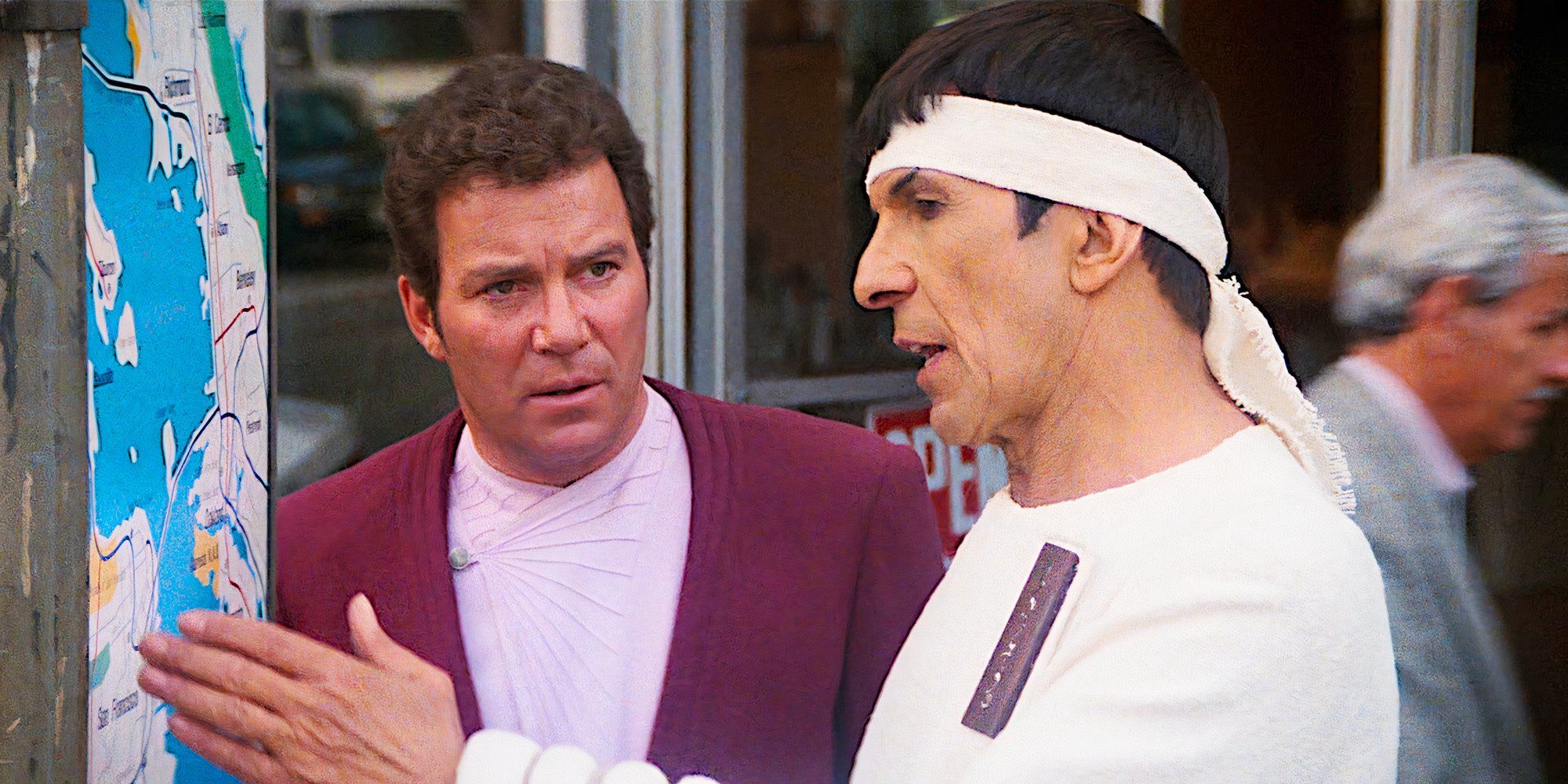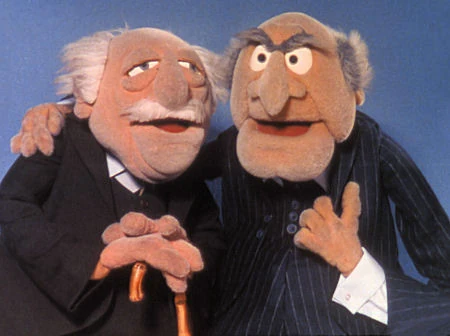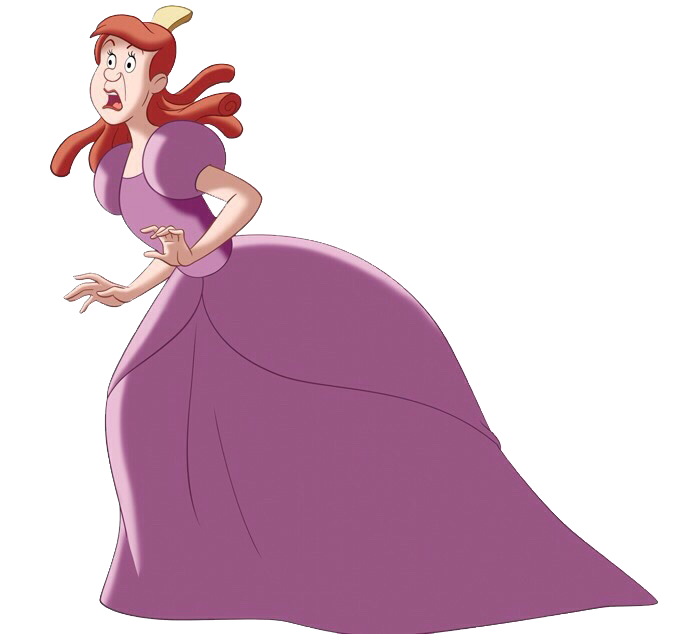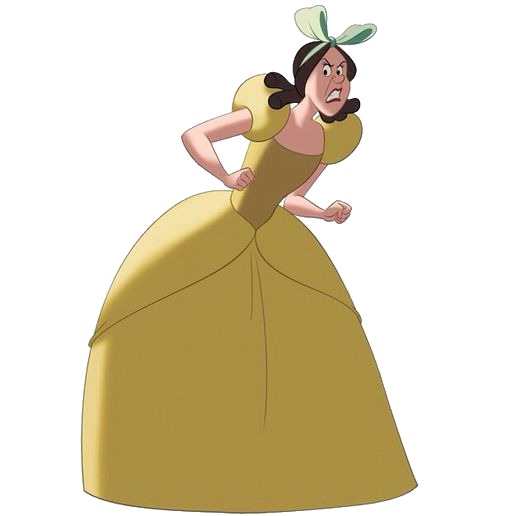William Shatner and Leonard Nimoy became legends thanks to their acting in , but each also got to put on their director’s hat for entries in the Star Trek original cast movie series. Nimoy became the first Trek actor to transition to directing when he took the reins for Star Trek III: The Search for Spock. The Not to be outdone by his on-screen second-in-command, Shatner received his own directing chance with Star Trek V: The Final Frontier.
The Captain Kirk actor cited a contract clause for him and Nimoy to remain equal in terms of pay and role, and took on a bigger creative voice in the follow-up to Nimoy’s successful Star Trek IV. Nimoy’s Trek vision, most fully realized in The Voyage Home, led to a film reflective of someone who has thought deeply about the franchise and its themes, and relates to creator Gene Roddenberry's humanistic values. When Shatner was given a chance to display his vision for Trek, it reflected someone who possessed his own rather odd ideas.
, and levels of competence, in the three Star Trek movies they collectively directed.
Shatner began writing what would become Star Trek V: The Final Frontier even before he was confirmed to direct the movie. In his book Star Trek Memories, co-authored with frequent literary collaborator Chris Kreski, the Captain Kirk actor revealed what inspired the story, recalling how he, for some reason,
Star Trek V’s rogue Vulcan Sybok (Laurence Luckinbill) is Shatner’s take on a fire-and-brimstone preacher offering salvation, though unlike the TV charlatans that inspired him, the character actually does possess mysterious powers. It isn’t long before Sybok has used his psychic abilities – enhanced no doubt by his being a Vulcan – to take over the Enterprise and its crew, with the notable exception of Kirk, who never buys into the mystic’s claims.
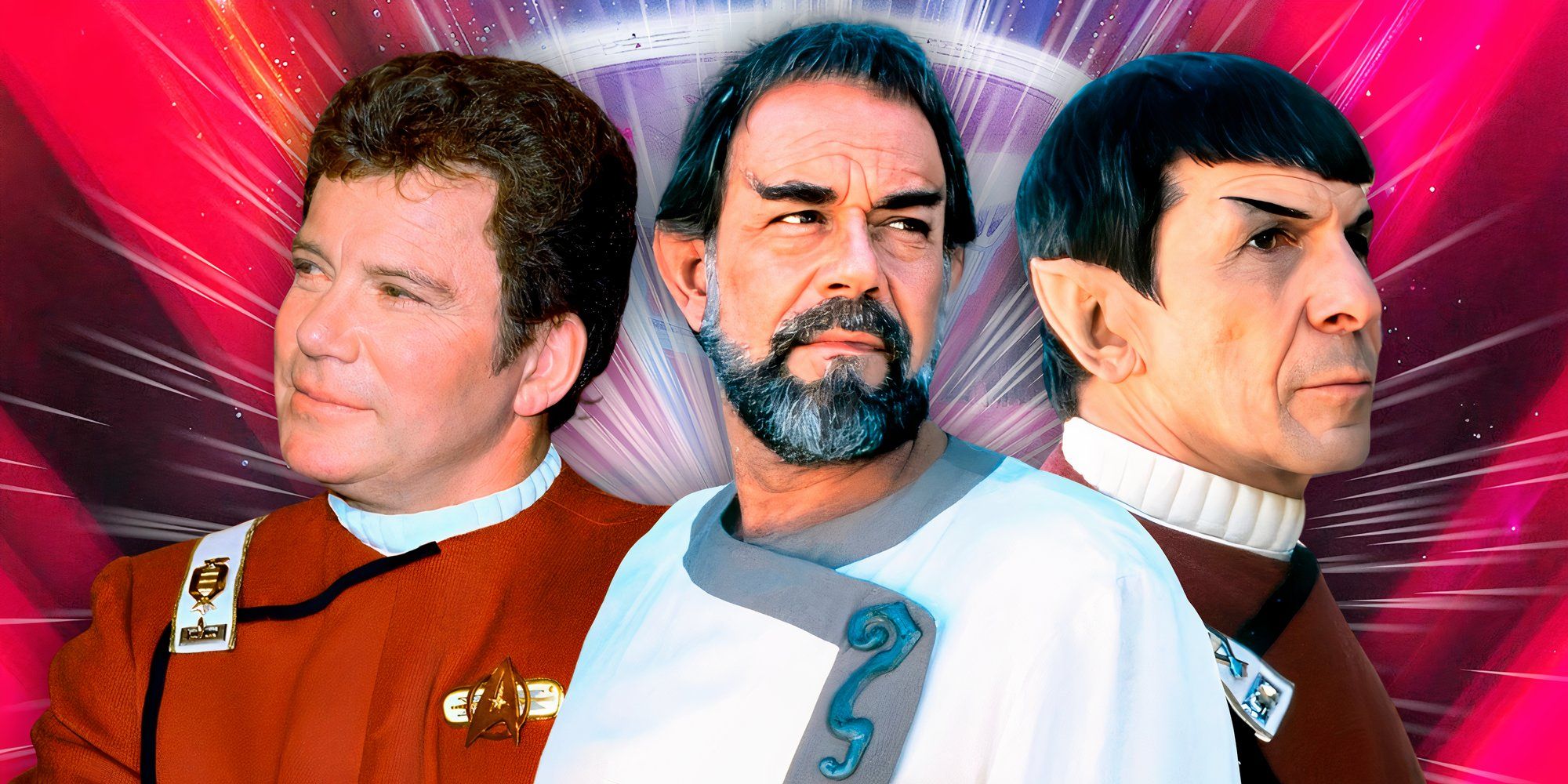
Related
Star Trek 5: The Final Frontier Ending Explained: What Happened To God & Spock's Brother
Star Trek V: The Final Frontier truly took the USS Enterprise where no man as gone before, and its legacy is being continued in a surprising way.
Shatner’s story isolates Kirk from McCoy and Spock, both of whom are taken in by Sybok. Kirk being positioned as a lone hero who has to save everyone, without the assistance he normally receives from his crew, is just one reason The Final Frontier has been accused of betraying the Star Trek spirit in favor of boosting Shatner’s ego. The movie’s silly comedy moments have also come in for criticism,
Star Trek was enough of a juggernaut in 1989 for what Roger Ebert called “the worst” movie in the series to still gross $63 million on a budget of $33 million. The film was derided by more critics than just Ebert, and hasn’t seen much change in its reputation over the years, as indicated by its 23% fresh rating on Rotten Tomatoes. Shatner came in for the worst critical drubbing, his story being bashed as pretentious, his direction as dull, and his ego as out-of-control.
The death of Nimoy’s iconic character at the end of The Wrath of Khan left fans facing the prospect of a Spock-less Star Trek. Their fears were unfounded, however, as Star Trek II had actually re-invigorated Nimoy, leaving him excited to bring Spock back to life, with himself in the director’s chair. Nimoy’s contribution to the resulting film was indeed mostly directorial, as he only plays Spock at the very end of the movie, with numerous other actors portraying a rapidly aging, re-animated version of the Vulcan from infancy to adulthood.
Reviving Spock was easy enough, given the sequel-bait clues left in the final scenes of The Wrath of Khan: Spock’s mind-melding with McCoy became a handy explanation for how the Vulcan’s consciousness could live on, while the life-generating powers of the Genesis device took care of Spock’s physical resurrection. Both Shatner and McCoy actor DeForest Kelley talked about their initial discomfort at being directed by their long-time co-star Nimoy,
| Star Trek Original Cast Movies Key Facts | Domestic Box Office | RT Critics' Rating | RT Audience Rating |
|---|---|---|---|
| Star Trek: The Motion Picture | $82 million | 52% | 42% |
| Star Trek II: The Wrath of Khan | $78 million | 86% | 90% |
| Star Trek III: The Search for Spock | $76 million | 78% | 69% |
| Star Trek IV: The Voyage Home | $109 million | 81% | 81% |
| Star Trek V: The Final Frontier | $52 million | 23% | 25% |
| Star Trek VI: The Undiscovered Country | $74 million | 83% | 84% |
Budgeted at $16 million, Star Trek III made $87 million at the box office, finishing as the 8th-highest-grossing movie of 1984, one of cinema history’s biggest years. The Search for Spock’s 78% fresh rating on RT reflects the view that the movie is strong, but not one of the very best Trek films. Nimoy’s direction received praise, as did the performances, while the story was somewhat criticized. The movie snagged six Saturn Award nominations, including Best Picture.
Trek fandom generally approves of Star Trek III, widely cited as the series entry that best captures the spirit of the show, coming after the slow-moving epic grandeur of Star Trek: The Motion Picture, and the broodingly dramatic heaviness of The Wrath of Khan.
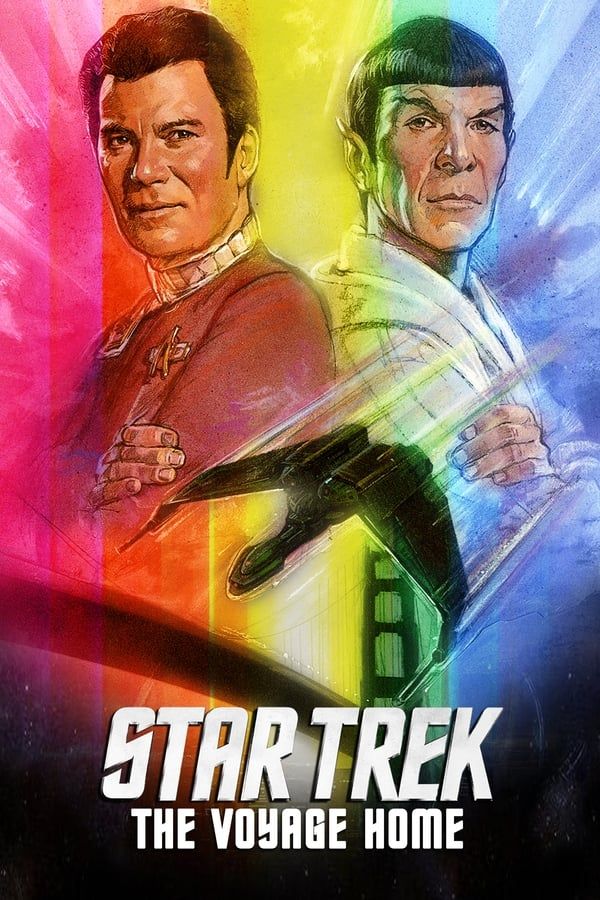
Star Trek IV: The Voyage Home finds the crew of the Starship Enterprise traveling back in time to 20th-century Earth in a desperate attempt to save humanity. Directed by Leonard Nimoy, the film features William Shatner as Captain Kirk and the returning cast, who must navigate the challenges of a different era while seeking to communicate with an endangered species crucial to Earth's survival.
“The One With the Whales” took on its environmental theme thanks to director Nimoy, who had more creative freedom after delivering a hit with Star Trek III. Nimoy’s whole conception of the film was indeed a departure from the earlier movies as well as TOS. As related in the 1995 book The Art of Star Trek, the Spock star mandated a story with "no dying, no fighting, no shooting, no photon torpedoes, no phaser blasts, no stereotypical bad guy.”
Leaving out these classic action elements, while emphasizing humor and social commentary, But it was also more bound to annoy hardcore Trek fans who expected dying, fighting, shooting, photon torpedoes, phaser blasts and a stereotypical bad guy.
Shatner and Nimoy's Star Trek IV salary demands were partly responsible for Paramount's decision to cast unknown, and therefore inexpensive, actors in Star Trek: The Next Generation.
Star Trek IV mildly divides the Trek community to this day. But one can only imagine the reaction the fandom would’ve had if Eddie Murphy had been cast in the film, as both he and the producers initially wanted. Murphy ultimately passed on the role written for him, doing The Golden Child instead. Murphy in a Star Trek film might have broken some people’s brains, but thankfully the wacky idea never came to fruition.
Unappreciative hardcore fans aside, Star Trek IV’s general reputation is strong, as indicated by its 81% fresh rating on Rotten Tomatoes. The Voyage Home is also the rare Trek movie to make a major splash at the Oscars, snagging four nominations: Best Cinematography, Best Sound, Best Sound Effects Editing and Best Original Score. The 1987 Saturn Awards predictably heaped even more praise on the film, giving it 11 nominations, the same number James Cameron’s Aliens received that year.
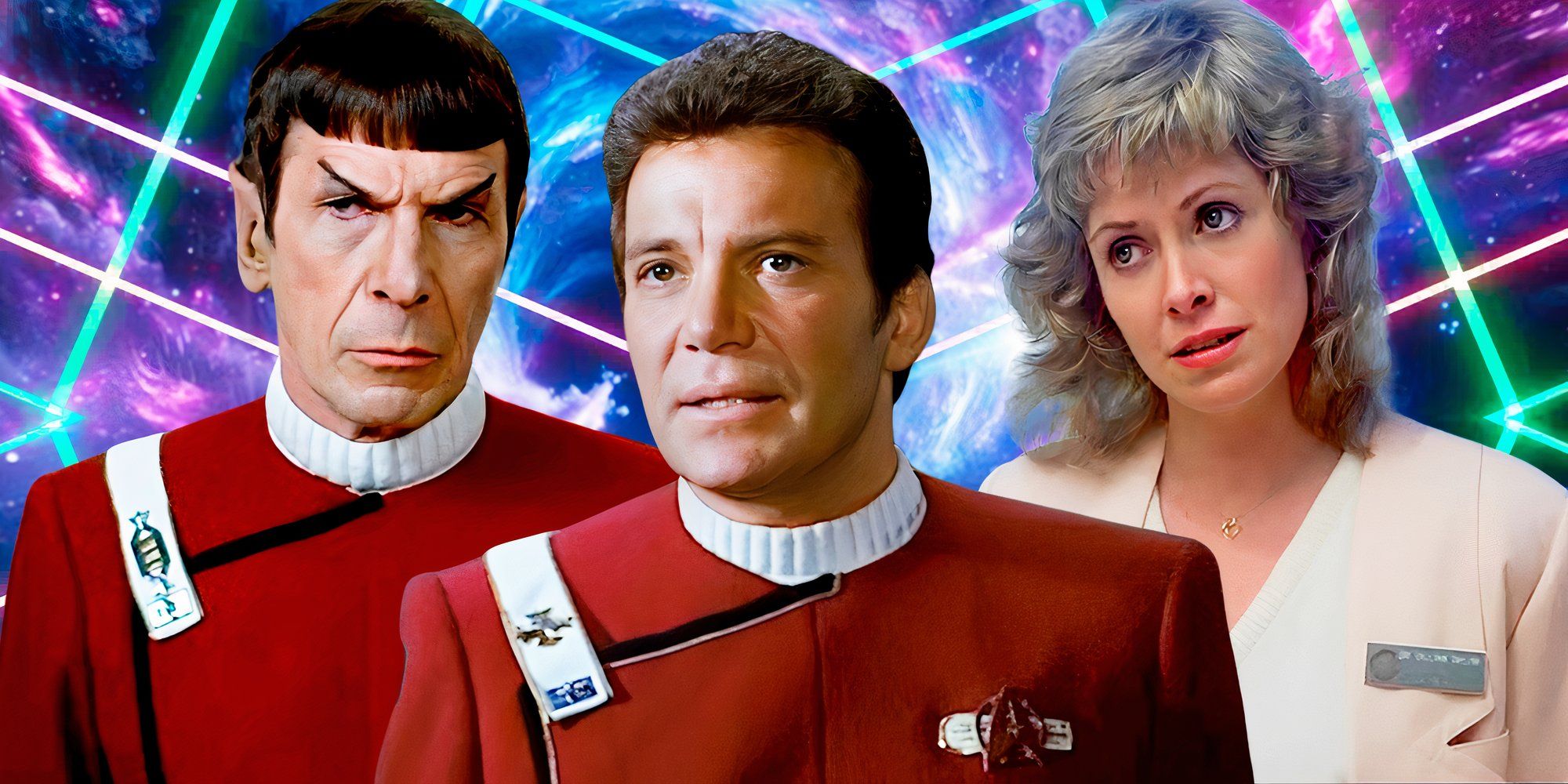
Related
Star Trek IV: The Voyage Home Ending Explained: What Happened To Kirk & The Whales
Star Trek IV: The Voyage Home concluded the "Genesis Trilogy," but what happened to Captain Kirk and the whales he time-traveled from 1986?
Paramount may have had misgivings about the story concocted as per Nimoy’s mandates, but the Spock actor was vindicated in the end, as Star Trek IV went on to gross $109 million domestically, making it the only Star Trek original cast movie to cross the $100 million mark. After Shatner’s directing turn in the sequel Star Trek V, the series returned to old hand Nicholas Meyer for Star Trek VI, the swan song for the full original cast.
But Nimoy and Shatner would not be the last Trek actors assigned the task of directing a franchise movie. Star Trek: TNG's Riker star Jonathan Frakes was handed the keys to Star Trek: First Contact, and did a good enough job to be given the same assignment on Star Trek: Insurrection. Both Nimoy and Frakes demonstrated a genuine understanding of in their directorial assignments, while Shatner seemed only interested in glorifying himself.
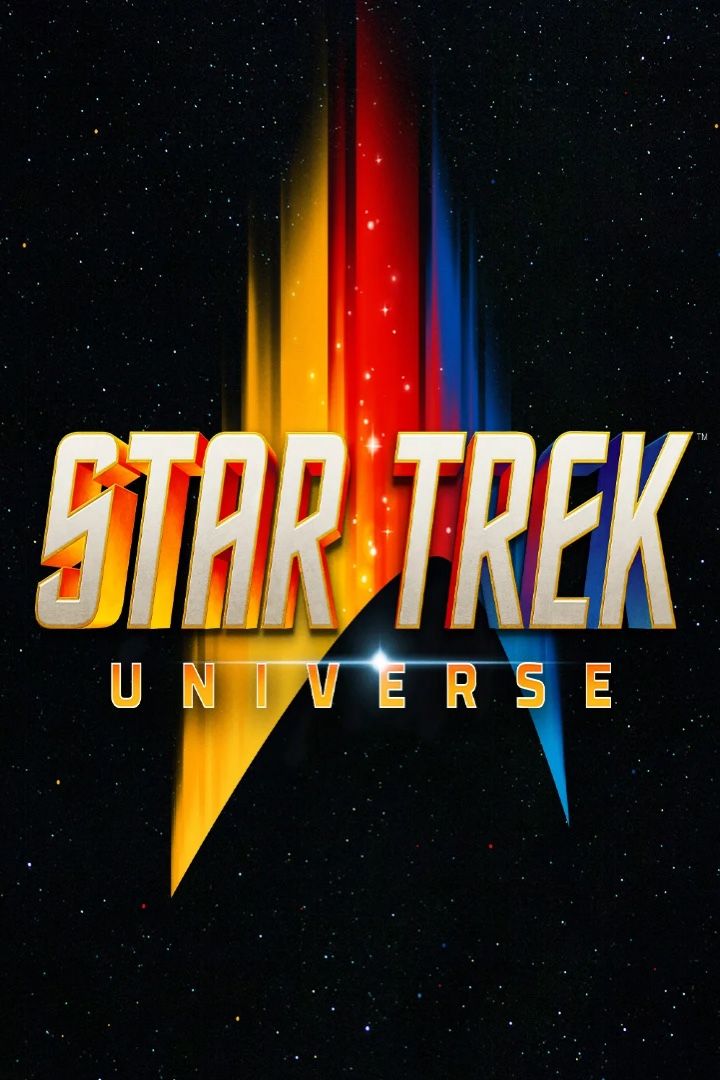
- Gene Roddenberry
- Star Trek: The Motion Picture
- Star Trek: The Original Series
- September 8, 1966
- William Shatner, Leonard Nimoy, George Takei, Nichelle Nichols, Deforest Kelley, James Doohan, Walter Koenig, Jonathan Frakes, Patrick Stewart, Michael Dorn, Marina Sirtis, Gates McFadden, Brent Spiner, LeVar Burton, Wil Wheaton, Avery Brooks, Nana Visitor, Rene Auberjonois, Alexander Siddig, Cirroc Lofton, Armin Shimerman, Colm Meaney, Terry Farrell, Kate Mulgrew, Robert Beltran, Roxann Dawson, Jeri Ryan, Robert Duncan McNeill, Robert Picardo, Ethan Phillips, Garrett Wang, Jolene Blalock, Connor Trinneer, Dominic Keating, Scott Bakula, Linda Park, John Billingsley, Anthony Montgomery, Chris Pine, Zachary Quinto, Simon Pegg, Zoe Saldana, Karl Urban, John Cho, Chris Hemsworth, Benedict Cumberbatch, Anton Yelchin, Idris Elba, Sonequa Martin-Green, Mary Wiseman, Doug Jones, Anthony Rapp, Wilson Cruz, Oyin Oladejo, Emily Coutts, Jess Bush, Christina Chong, Anson Mount, Ethan Peck, Rebecca Romijn, Michelle Yeoh
- Star Trek: The Original Series, Star Trek: The Animated Series, Star Trek: The Next Generation, Star Trek: Deep Space Nine, Star Trek: Voyager, Star Trek: Enterprise, Star Trek: Discovery, Star Trek: Short Treks, Star Trek: Picard, Star Trek Lower Decks, Star Trek: Prodigy, Star Trek: Strange New Worlds, Star Trek: Starfleet Academy
Star Trek is one of pop culture's biggest multimedia franchises, spanning multiple movies, TV shows, books, comics, video games, and various other media. The franchise was created by Gene Roddenberry and started with the 1960s TV series starring William Shatner and Leonard Nimoy. Over the decades, several equally popular series have come out since as Star Trek: The Next Generation and Star Trek: Discovery.
